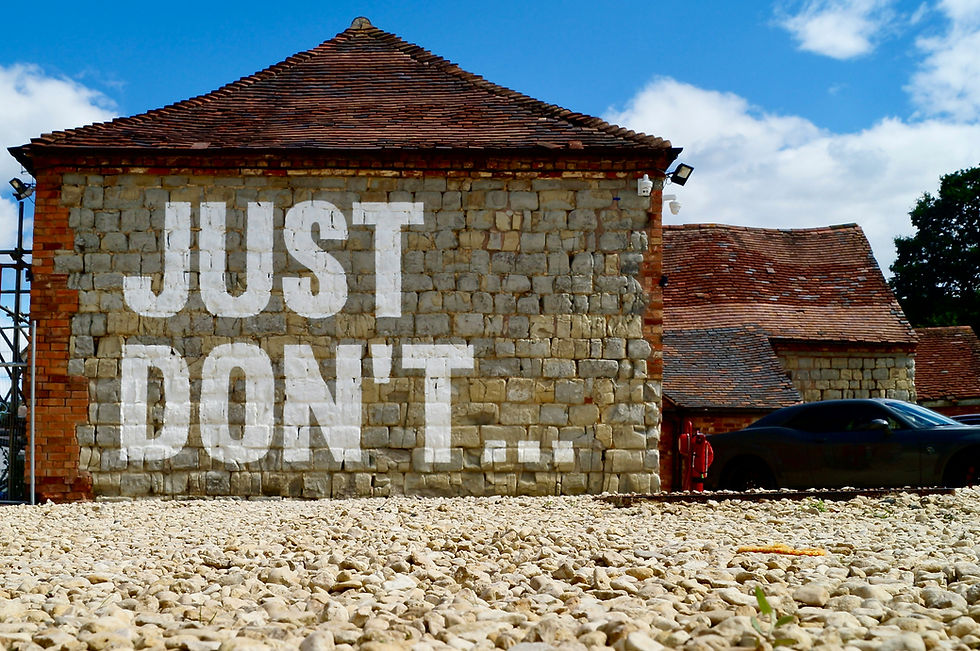Sorry I Missed The Party…
- Jessica Kiragu
- Aug 23, 2024
- 3 min read
The police were parked outside my front door. In fact, police cars lined the entire street. Blue lights lit up my block.

I saw them standing at several neighbors' doors and walking through their yards with flashlights. The cops seemed very interested in finding something or someone. I couldn’t leave.
The police would be at my door soon, and I was sure they would expect someone to answer. The officers had just watched my family drive down the street, park in the driveway, and go inside. I made eye contact with the cop sitting in his car parked just outside our home. There was no pretending we weren't there.
I was afraid for anyone else in my family to answer the door. I was also afraid of what might happen if they didn’t answer. This is why I couldn’t come.
You see, if they knocked on my door while I wasn’t home, my black husband or brown kids would be the ones the officers found. For brown and black folks, answering or not answering the door when police come knocking isn’t simple. In my family, we already know how interactions with officers typically go for my husband and how differently it goes when I interact with police (you can read about it here).
That night, when I was trying to decide if I should go to your party or not, here’s where my mind went…
What if the officers don’t knock and just enter… Breonna Taylor
What if the police see my kids or husband in one of the windows of our home… Atatiana Jefferson
What if my partner or kids open the garage door and walk outside… Andre Hill
What if the officers think someone inside my home called for help… Aura Rosser, Sonya Massey
What if someone in my family decides to go stand in the backyard… Stephon Clark
What if the cops enter our home and mistake my husband or son for an intruder… Botham Jean
My whiteness doesn’t shield them, but it does protect me. I’m wary of cops coming to my door when only my black partner or brown kids are home as they don’t benefit from the same skin color privilege. We have too much evidence — personal and public — that for them, it could go very wrong, very quickly.
I imagine you might have some thoughts as you read this. Maybe, like others I’ve spoken to, you think I’m making a big deal out of nothing — you might argue that it’s unlikely the police would harm my family. You could suggest that I should let it go because the police are doing their best and cops put their very lives on the line everyday.
Or perhaps you’re thinking, as some have told me, “it’s not as if police only shoot black people.” You might point out, as I’ve heard before, that being white doesn’t guarantee safety in police encounters. And, that’s absolutely true.
But my worry and discontent go beyond just the police. There’s a bigger picture here that affects all of us. I’m not trying to vilify cops or anyone, for that matter. What I mean to do is give personal testimony to a bigger problem.
Friends, I keep writing and talking about whiteness because I’m not free. When it comes to race in the US, I don’t think any of us are. In the United States, we’re all part of a social system that was designed to — and continues to — perpetuate race-based inequity, violence, and death. Inequity and injustice touch our lives in many specific and contrasting ways. Race is just one of them.
In the US, we have a flawed narrative about skin color. It’s a story that shapes how we perceive and treat one another — a tale about who’s dangerous and who deserves protection or the benefit of the doubt. None of us are immune to its influence, not even police officers.
So, although I said I’d be there and I really wanted to go, I hope you’ll forgive me for not showing up. If you don’t understand, that’s okay. I only ask for some grace. If you can’t extend grace, maybe yours isn’t the party for me.




Comments